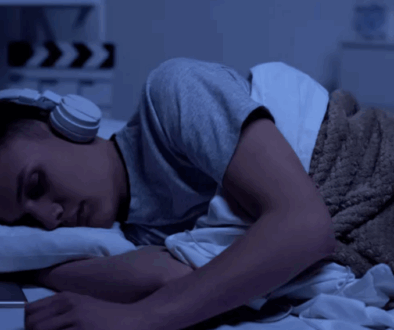Mental Health for Veterans: Addressing the Lingering Impact of War
*Read the original article here: https://www.usnews.com/news/health-news/articles/2023-05-26/veterans-mental-health-addressing-the-lingering-impact-of-war
By Erin Fletcher
March 20, 2023, marked two decades since the U.S. invasion of Iraq, with millions of Americans answering the call to serve our nation in uniform over the past 20 years. Yet even with U.S. forces no longer in active combat in Afghanistan and Iraq, our country is left to tackle an unfulfilled need, with too many military members facing hurdles to accessing mental health care.
Failing to tackle veterans’ mental health needs could cost lives. A 2021 report by the Costs of War project at Brown University estimated that more than 30,000 active-duty personnel and veterans of the post 9/11 wars had died by suicide. That’s quadruple the number lost in combat.
Another risk that can arise is veterans abusing substances to cope with the invisible wounds of war. But accessing treatment for substance use disorder remains a challenge, with veterans too often dealing with unacceptably long delays when trying to get help.
But even veterans with access to mental health resources can struggle with accepting the help they deserve. Military culture often emphasizes toughness and self-reliance, leaving some veterans concerned about how they may be perceived if they seek care. Wounded Warrior Project offers post-9/11 veterans free mental health support, but many still turn it down, thinking they might be taking resources from someone in greater need.
These reasons are why a multifaceted approach that increases awareness, education and access to care for our veterans is essential.
Mental Health Issues Are More Common Than Physical Wounds
According to Wounded Warrior Project’s Annual Warrior Survey, mental health issues accounted for three of the top four most common service-connected injuries among veterans registered with the nonprofit who served either on or after 9/11, and 3 out of 4 of these veterans reported post-traumatic stress. Similar shares of respondents reported experiencing anxiety and depression, according to the survey, and half of veterans reported moderate to severe symptoms of two or more mental health conditions at the time of the survey.
These conditions require the same urgency as a physical injury. Mental health struggles can become difficult to overcome and manage when left untreated and can have long-term social, emotional and cognitive consequences. The impact can impede veterans from realizing the fullness of their professional and personal futures and hinder their ability to thrive after service.
Veteran Families Deserve Resources, Too
Military families are not immune to the emotional weight of war. Family members and close friends are often among the first people veterans turn to during their struggles when transitioning away from military service. The pressure of providing this support can affect a loved one’s well-being, particularly those who support severely injured veterans with long-term care needs.
Mental health resources must be accessible to veteran caregivers and loved ones to address the psychological impact of military service. But there are not enough mental health providers to meet this demand. The Department of Health and Human Services estimates that 163 million Americans live in areas with a mental health provider shortage.
Some veterans service organizations are filling the gap by offering family members access to mental health support and resources. Wounded Warrior Project, for example, serves family members and caregivers through programs like WWP Talk, where they can participate in weekly calls focused on setting goals and strengthening coping skills.
Partnerships are another way to support caregivers and families. One example: The Hidden Helpers Coalition, backed by the White House’s Joining Forces initiative, aims to address the needs of children who serve as caregivers for injured veterans. Over 70 organizations, including nonprofits and corporations, are part of the coalition. Efforts like this help military families build skills, access tools and find support for their mental wellness.
Find Your Role in Supporting Veterans’ Mental Health
You do not need to be a veterans service organization to support your employees, neighbors or friends with military ties. Understanding veterans’ issues can increase your sensitivity and help you advocate for veterans and their mental health needs.
Policymakers can drive legislation, funding and advocacy efforts to ensure veterans have access to the quality of care they deserve. In January, backed by federal legislation, the Department of Veterans Affairs announced access to free crisis care for veterans struggling with suicide, regardless of whether they are enrolled with the VA.
Business leaders, too, can create a culture of support for military families within their company and community. Johnson & Johnson’s Veterans Leadership Council, for instance, develops programs and initiatives to help veteran employees reach their full potential while addressing the military-connected community’s unique health and wellness needs. CSX, a leader in national transportation, not only puts a focus on hiring veterans but further connects employees and community members with veterans to raise critical funds and awareness through its Pride in Service initiative.
Public education also can break down stereotypes and misconceptions about veteran mental health and foster open, informative conversations that help normalize seeking mental health care. For Veterans Day 2021, the Ad Council and the VA collaborated on a campaign called “Don’t Wait, Reach Out” to destigmatize asking for help. Wounded Warrior Project also runs social media campaigns using #CombatStigma to raise awareness and reduce barriers around asking for help. Participating in these conversations sends a powerful message of support and helps resources reach those in need.
At the same time, it’s essential that mental health professionals exchange best practices for caring for groups with unique experiences, like veterans. That’s what prompted the creation of the Warrior Care Network, a network of mental and brain health experts who specialize in treating veterans. A two-week intensive outpatient program for post-traumatic stress disorder pairs with follow-up and peer support, offering a condensed treatment model with high completion rates and significant decreases in PTSD symptoms. This innovative model allows veterans to feel better faster and maintain well-being gains long-term.
Everyone can play a role in supporting veteran mental health. Together, we can improve how we care for those who answer the call of duty to our nation. Through such efforts, we repay our debt to the individuals and families who have sacrificed so much on our behalf.
If you are a veteran struggling with thoughts of suicide, dial 988 or text 838255 to contact the Veterans Crisis Line. For information about resources available from Wounded Warrior Project, visit woundedwarriorproject.org.



